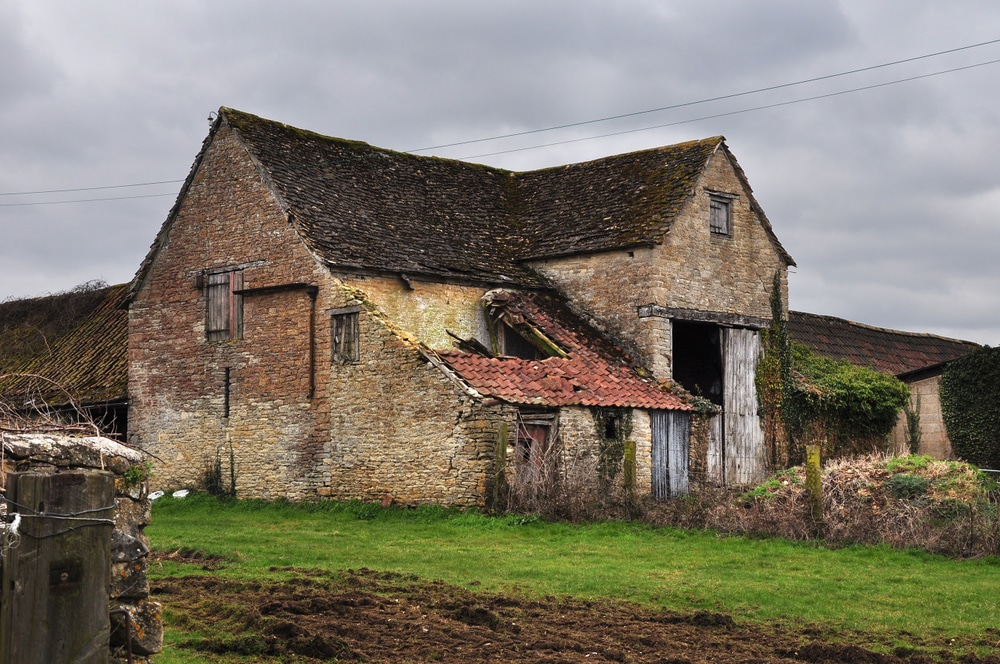Barn Conversions in Gloucestershire
Since the introduction of the NPPF in 2012, the allowance to convert disused or redundant rural buildings has been around in one form or another. In its most recent form, paragraph 80 of the National Planning Policy Framework (NPPF) supports the principle of creating new dwellings through the conversion of redundant or disused buildings.
Despite this overarching National support from the Government to promote the creation of new homes from disused rural buildings, many Local Plans either are silent on the topic or include further requirements (in some instances onerous!) that applicants need to abide by. As the Local Plan is the starting point for decision making, being aware of what Local Plans require is crucial to the success of your project.
Given our wealth of experience working in Gloucestershire, a predominantly rural county with an abundance of agricultural and equestrian buildings – many of which are ideal for conversion into dwellings, we have briefly set out below our experience on how each of the local authorities approaches barn or other rural building conversions.
Cotswold District Council
The current Local Plan, which includes policy EC6, supports the conversion of rural buildings (note it does not restrict conversions solely to agricultural buildings) providing three criteria can be demonstrated.
- The building is structurally sound and capable of conversion
- The conversion would not cause conflict with existing farming operations
- The creation of a new dwelling would be compatible with extant uses at the site
In our experience, it is seldom the case that criteria b) and c) prevent a barn conversion and decisions in the Cotswold District tend to turn on the structural integrity of the building and the overall design of the conversion, which is governed by other policies.
Tewkesbury Borough Council
Tewkesbury’s Policy shares many similarities to Cotswold District Council. However, additional stipulations request the proposal preserves or enhance the landscape setting and that it mitigates impacts on protected species. Crucially, there is nothing in the policy that precludes the conversion of modern rural buildings (i.e. they do not necessarily have to be historic stone-built barns to be successfully converted).
Cheltenham Borough Council
Even though Cheltenham is predominantly an urban area, the Borough Council has a policy that deals specifically with the Conversion of Rural Buildings. The policy currently requires the following:
- be structurally sound and capable of conversion
- cause no harm to the character of the buildings or surrounding character
- not cause conflict with existing or planned uses nearby
- accord with other relevant policies in the Local Plan
Forest of Dean District Council
For one of the more rural districts within Gloucestershire, the Forest of Dean does not have a dedicated planning policy to determine the conversion of rural buildings.
This has led to some ambiguity over the issue of conversions in the Forest of Dean, but in our experience, if it can be demonstrated that the building in question is genuinely redundant, the Council has no choice but to fall back on the guidance within Paragraph 80 of the NPPF, leading to planning permission being granted.
Stroud District Council
Stroud can be considered to have the strictest policy position. Not only does a building need to be proven to be structurally sound, but it also needs to involve a building that “contributes to an established local character and sense of place”. Furthermore, there are six qualifying criteria none of which most redundant rural buildings are likely to meet.
This position is changing, with the Council amending its policies with the new Local Plan due for adoption in 2023. The six qualifying criteria on the current policy will be expanded to nine with one of them allowing the creation of new dwellings in rural locations if it involves “the re-use of an existing rural building”, to align itself with Paragraph 80 of the NPPF.
For the next 12 months Stroud District Council may continue to obstruct barn conversion applications, but providing the new Local Plan is adopted as drafted, the opportunities for barn conversions in Stroud will improve.
Gloucester City Council – no specific policy and no up-to-date Local Plan
Out of the six Gloucestershire local planning authorities, Gloucester is the area least likely for a rural building conversion opportunity. The emerging Local Plan is silent on this issue and in the event development of this nature presented itself, it would be determined solely by paragraph 80 of the NPPF.
What the above highlights are that whilst at a national level the support and intention is there to convert rural disused buildings, the devil is in the detail when it comes to individual requirements set out in the Local Plan.
At McLoughlin Planning we work on several rural development projects across the Country. If you have any questions about securing planning permission for a similar proposal you wish to discuss, then please contact Joe Seymour on 01242 895008 or joe.seymour@mplanning.co.uk
